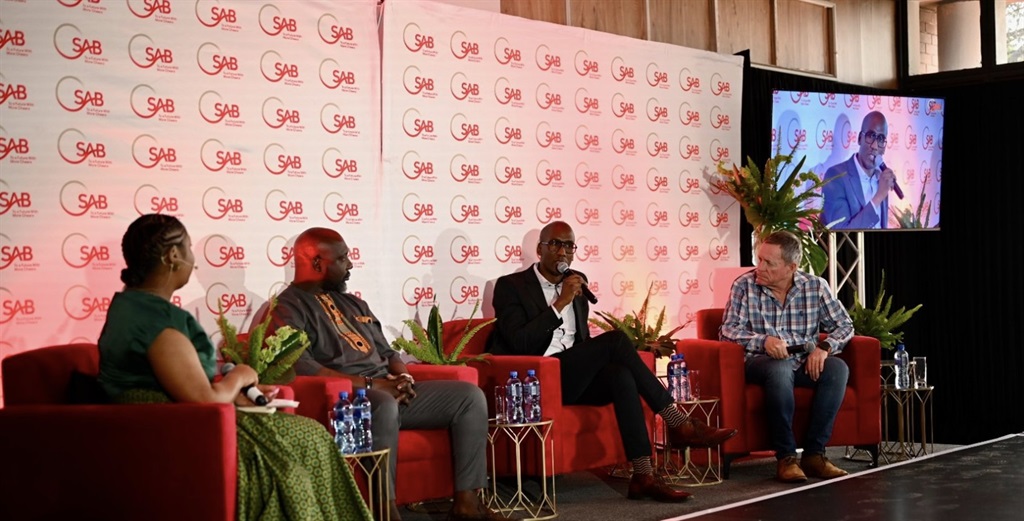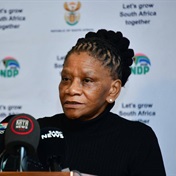
The price of beer has become increasingly expensive over the last decade. This is coupled with high inflation rates, which have seen consumers dipping into their pockets just to make ends meet.
This has led to the beer industry facing tough competition from more popular alcoholic beverages, such as ciders.
This was the finding of the Bureau for Economic Research (BER) at the SA Breweries’ (SAB) annual state of the beer economy presentation held in Alberton, Ekurhuleni, on Wednesday. The event brought together key stakeholders in the beer sector to discuss issues facing the industry and how to better deal with them.
City_Press: This is where the magic happens! 42,000 bottles per hour are processed on this machine at SAB's Alrode Brewery in Alberton, Ekurhuleni. #StateOfTheBeerEconomy pic.twitter.com/4osSyp9j4G
— Thapelo Lekabe (@ThaploL) September 6, 2023
Speaking at the event, Linette Ellis, a consulting economist at the BER, said that over the last decade, beer prices have been becoming more expensive for consumers, which has negatively affected the sales of beer in the country.
READ: SAB calls for strong excise tax certainty, as liquor industry battles declining volumes
She attributed this to the high inflation rate, which has left consumers with less disposable income to spend on beer, and tough competition in the industry.
The BER estimates that this year, the food, beverages, and tobacco sale volumes will decline by half a percentage (0.5%).
Ellis said:
She added that the income elasticity of flavoured alcohol beverages, or ciders, has been on an upward trajectory over the last couple of years as new entrants to the market continue to be introduced:
"There are a couple of reasons we believe that the price of beer has become more price-sensitive over the last decade. There's been an increase of competition within the liquor industry.”
The findings of the BER have shown that beer's share of the liquor market by volume declined from 77% in 2011 to 71% in 2022.
One of the interesting findings made by the BER is the correlation between social grants and beer sales in the country.
READ: Social development department wants R350 social relief grant to be paid for another two years
Ellis said that the introduction of the Social Relief of Distress (SRD) grant, popularly known as the R350 grant, in 2020 at the height of the Covid-19 pandemic largely benefited the beer industry along with interest rate cuts at the time that left consumers with more disposable income.
However, given that the SRD grant has not been increased in line with inflation since it was last introduced and given the increase in inflation – more grant beneficiaries are choosing to spend their money on food instead of cold beverages.
On the positive front, the Consumer Price Index (CPI) has been slowly decreasing this year and according to Ellis, this will likely benefit the beer industry over time.
She said:
Meanwhile, SAB CEO Richard Rivett-Carnac has called for policy certainty on excise tax for the liquor industry, saying it would help the sector to better plan and weather the current economic storm.
Rivett-Carnac said that the liquor industry, which is generally defensive during tough economic times, had seen volume declines of 5% in the first seven months of 2023. This was a "very material number" for the industry, he said, and indicative of the pressures facing both the sector and consumers.
@City_Press: Inside SAB's Alrode Brewery in Alberton, Ekurhuleni, Africa's second largest brewer. #StateOfTheBeerEconomy pic.twitter.com/JN1WL3mw5x
— Thapelo Lekabe (@ThaploL) September 6, 2023
He called for more consistency in the annual excise tax increases, with them being more in line with consumer price inflation. He also said that the industry should be provided with a three-year guidance to help with planning.
He mentioned:
Rivett-Carnac stressed that SAB was supportive of excise taxes, understanding that if it sold more alcohol, it needed to do so responsibly and pay a fair tax on it. However, he said that the current system was making it difficult for the industry to plan and invest for the future.




 Publications
Publications
 Partners
Partners









